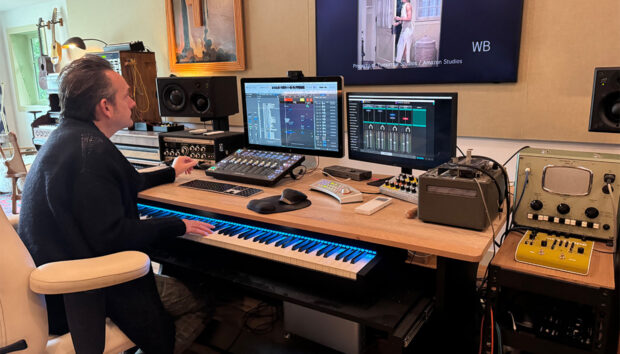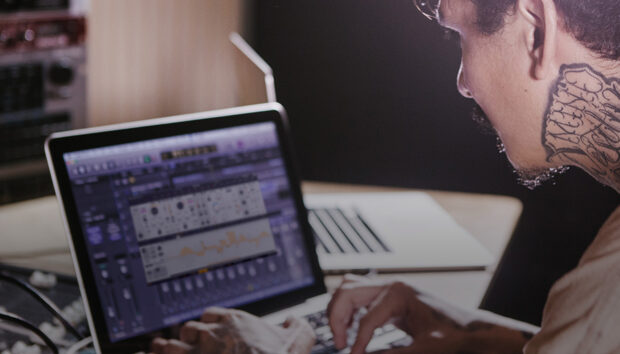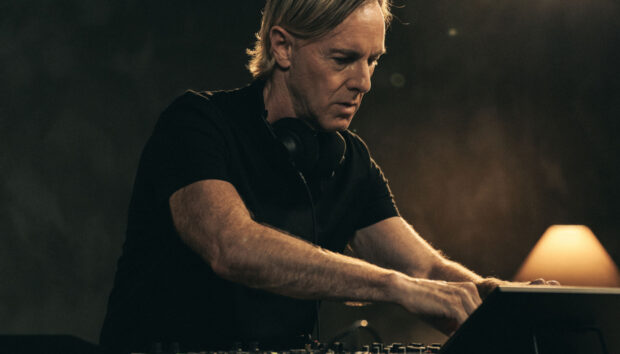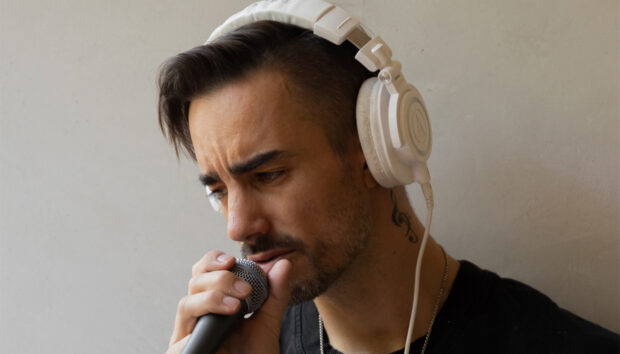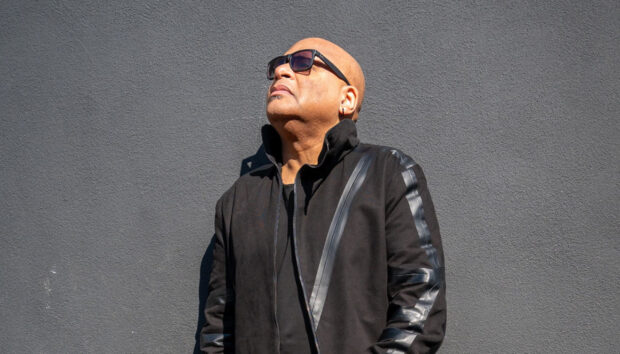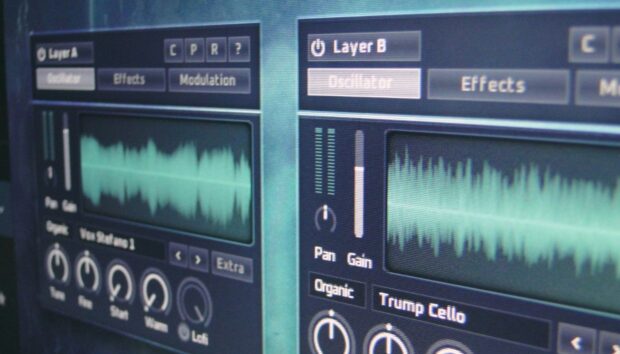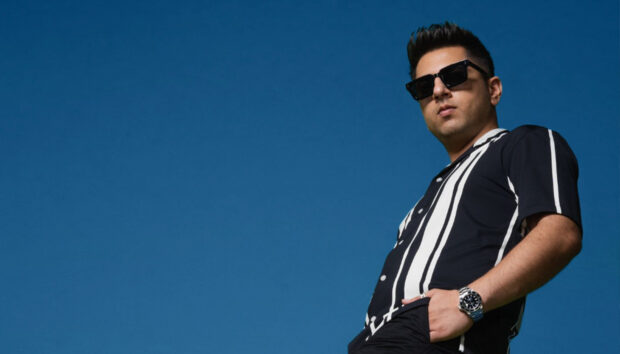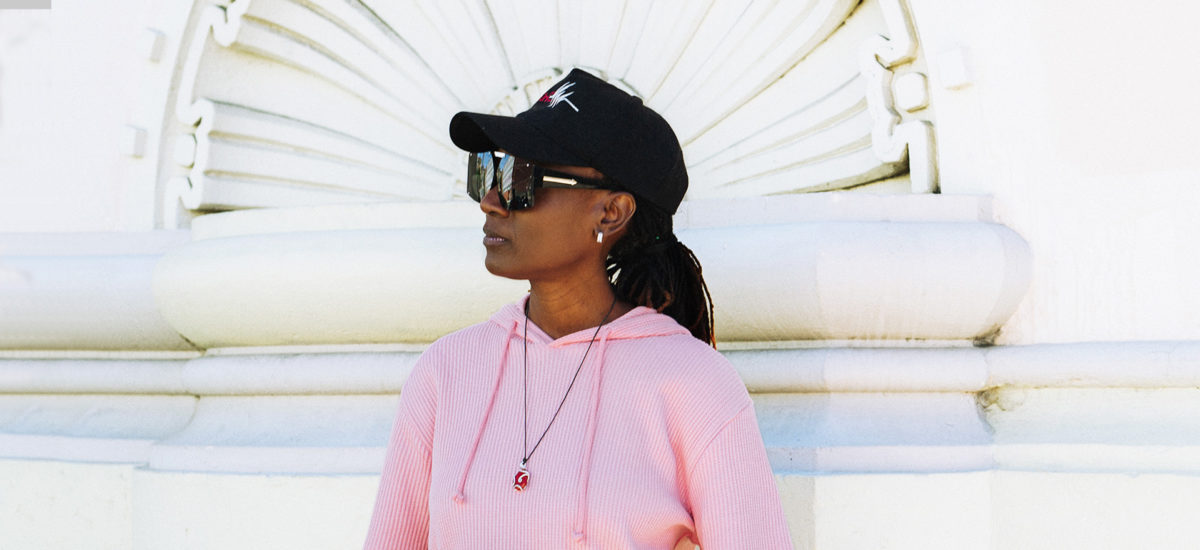
Rachael Kungu, a.k.a. DJ Rachael is a true vanguard. Originally an MC, Kungu started DJing in her home town Kampala in Uganda over twenty years ago, which made her the first and only female DJ in the East African country. Since then the TRAKTOR S4 user has been a whirlwind of activity, shaping Kampala’s scene like few others. In her sets, she elegantly traverses a myriad of styles from hip hop to afro-house to EDM to South-African gqom.
In 2016 she submitted a DJ mix for WOMEX (World Music Expo) in Spain. She was selected as one of only two DJs from Africa. Shortly after that she got to play in the US as well as in big European dance music hubs like Berlin, Paris and London, gaining more and more attention for her craft behind the decks as well as her productions and edits which make a big portion of her sets these days. But Kungu isn’t just a musical powerhouse, she is also deeply invested in supporting other women to succeed in an industry that is still male-dominated. We spoke to her about her journey so far.
Being the first female DJ who started in the mid-90s, you are a trailblazer in your home country Uganda. How did you get in touch with DJ and club culture in the first place?
I was a big fan of Salt-N-Pepa. One day I saw Spinderella, their DJ, on TV for the first time and it really impressed me. Especially the way she was scratching. I loved it. But back then I didn’t think that much of it. I loved to rap and write my own songs. That was my main passion at the time. So when I started to get involved with the club scene a little later they gave me a mic because I told them that I could mc.
What had you put down the mic and getting behind the decks?
Ultimately, I think I got into DJing by accident. Some of the DJs at the club where I was rapping told me one day that they were sure that I could easily learn how to play records, too. I don’t know why they brought that up. Back then there were no female DJs. They showed me a few basics and from then onward I practised and practised, trying to get better on my own. I didn’t care that much about mixing songs together in a seamless way at first. I was pretty much all over the place musically. Initially, it was the scratching I was really excited about. But the more I got into it the more interested I got into mixing and telling a story with the music.
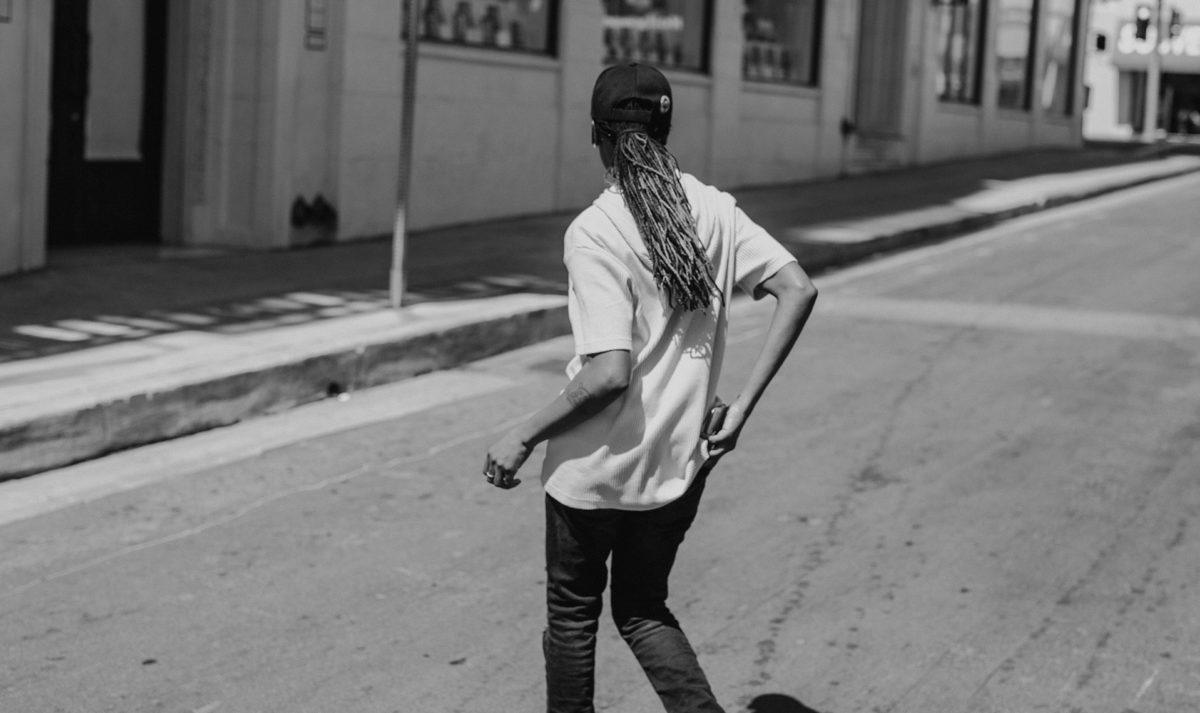
That was around 1997, right? How would you describe the scene in Kampala back then?
I only went to the two clubs where I was playing. I didn’t go out to the other clubs. I was still pretty young, and my parents didn’t know what I was doing during the night. Nevertheless, I got exposed to a lot of different music. Soul was big, hip hop was coming in strong, ragga as well and you would also hear a lot of Congolese and South African music, which were quite popular. Eventually hip hop took over. Club Silk, where I was playing, had a big collection of CDs and vinyl in the DJ-booth. There was no place in Kampala to buy records back then. CDs were a little bit more available, but they were often quite expensive. We had a good boss, who bought and imported records from the US and from Europe, too.
The music was provided by the club for you to play.
Yes. But it didn’t take that long that I wanted to explore different things. I was a bit adventurous. I didn’t want to sound like the rest of the DJs so I started to look for music that wasn’t provided by the club owner. I checked with my friends, especially those who had family members that were travelling a lot, to see if they could help me out with bits and pieces.
What was the crowd like at Club Silk?
The crowd was really young. As was I. At Club Silk you would meet a lot of students, young adults. It was very hippie. They would sing along to most of the songs we were playing. They also danced like there was no tomorrow, jumping up and down the whole time. Compared with today. It was more interactive back then. I am not sure where they all had heard the songs we played, maybe on the radio, but they were very enthusiastic and outgoing.
I imagine being the first female DJ came with a lot of challenges. What was your experience?
It was both, an advantage and a challenge. When you are the only one of anything it can really work in your favour. But there was also the other side: like undue attention from men for instance. That can be intense. But there are also a lot of challenges that just come with being a DJ in Uganda. Getting music and getting by for instance. It’s a constant thing. I learned how to make the best of any contact I made along the way. I learned how to collaborate and how important it is to do that. It’s been hard work, but I think I am a strong character and all the challenges only made me more dedicated. They sharpened my vision of where I want to go. I have a talent of reinventing myself. I am taking the challenges as they come to me.
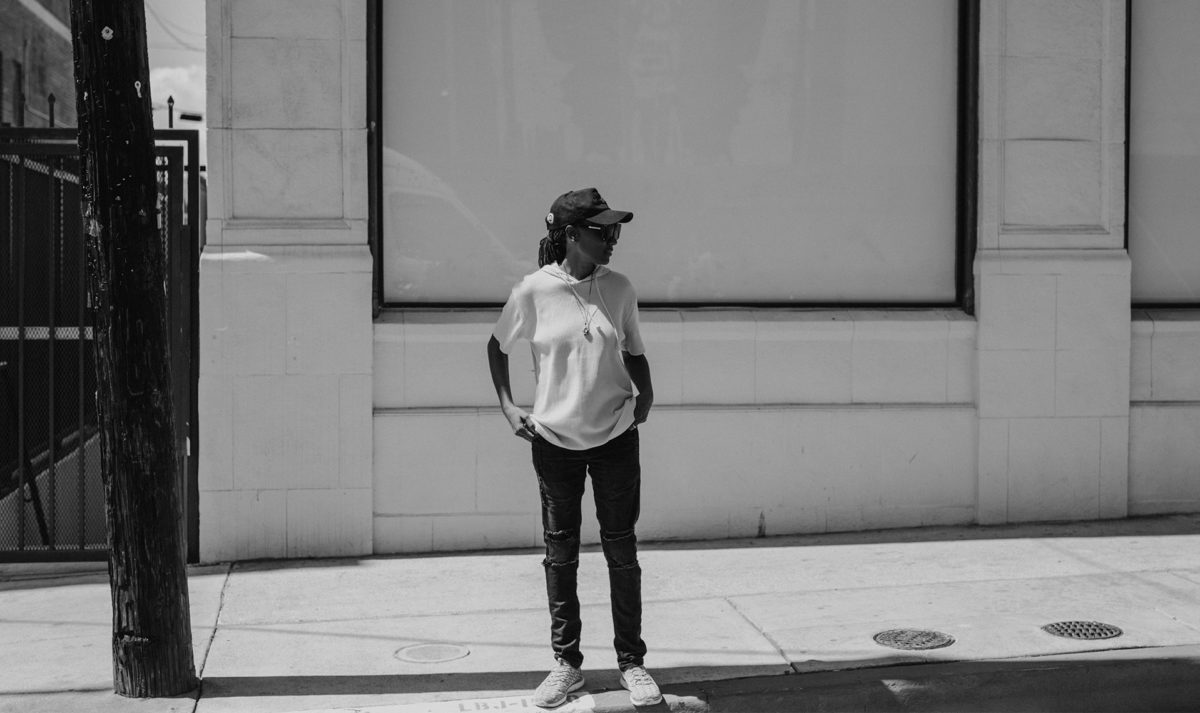
You said earlier that your family didn’t know about you being a DJ. How did they find out and how did they take it?
They found out by accident. Somebody told my mom, I don’t know who. One day she surprised me at the club. When I saw her coming I could see that she was pretty mad. She made a big scene and also argued with the manager of the club. She knew that I loved music, she saw me rapping and writing songs at home every day, but I guess she couldn’t imagine me actually working in a club. And I never sat down with my family to tell them. But she eventually came round. She realized that she couldn’t stop me anyway.
And the rest of your family?
They knew something was up because I was often away during the night on weekends. I come from a middle-class family in Uganda. We had TV at home and VCRs, I went to a paid school. My family was more liberal than the average Ugandan family. They didn’t have a problem with me clubbing. It was mostly my mom who had all these stories about me going out.
What exactly was she afraid of?
I was still pretty young. Me being so far from home in a club filled with men who were drinking freaked her out. She was especially worried about how I got to the club and back home. One of her biggest fears was that I get kidnapped one day. To me, that felt like a bit of an irrational fear. It’s different today though.
It’s more dangerous today in Kampala then 15, 20 years ago?
Yeah, I think today it is less safe in Kampala. At the same time, today’s women and girls are more aware, and they know how to help themselves better. But as an example of why I think it was safer back in the late 90s and early 2000s: If I didn’t go with friends or in a private cab, I used to take my bike to ride to the club. It was a bit of a distance from my home. I wouldn’t do that at the moment. I would be very scared if I had to do it.
Jumping forward a few years now. In 2016 you submitted one of your DJ-mixes to WOMEX (World Music Expo) in Spain and you got selected as one of only two DJs from Africa. How did that come about?
A friend of mine, a Brit who lives in Berlin, gave me a heads-up about WOMEX. He challenged me to enter the competition. He really believed in me. So I got in contact with the people at WOMEX to figure out what I needed to do and then I submitted a mix of mine. And then boom! I got in. I was ecstatic. It was my friend who told me. He signed in to my account, we both got their messages, and when he saw the news before me he called me on WhatsApp. When I heard that I was accepted, I ran out of the house, incredibly happy. I couldn’t believe it. Thousands tried to get in and they chose me. I felt special.
Since then your career has gone a bit into overdrive. You started traveling to Europe, to the USA. How was that?
Things accelerated after WOMEX. It was, and still is, very exciting. The sudden change of pace and all the attention didn’t stress me out that much. Maybe I had subconsciously prepared for this moment where a lot of people suddenly want something from me. Still, it was a new experience. But I think I handled it quite well. As a DJ I am required to adjust to a lot of different settings. I knew I could handle that. But to travel and to play in Europe and the US was really exciting. It was hectic but a lot of fun, too. I am really glad about how things have developed.
Can you live off of being a producer and DJ in Kampala?
No, that is still pretty unheard of. You have to have another job on the side, another business. Otherwise, you won’t be able to make ends meet. DJs don’t have the same status as in Europe or in the Americas. It’s very, very different. The only way to be able to live as a full-time DJ is to be recognized in Europe and the international community. That means travelling a lot. At the moment I don’t do so many gigs. Not as many as I would like. I would love to get into this rhythm of playing every other weekend to get more exposure. I am not making much money with it. I am still in the process of establishing myself. But I am slowly getting there.
I read somewhere that you have your own sound system that you rent out for events.
I am still doing that together with my partner. We are wedding planners. She does the clothes and cakes etc. and I take care of the music. I have a sound system at home that I use for this business. There is a lot of competition in this field back home, and my sound system is not that big. It’s only suited for smaller events. We also have a small real estate business that we’ve just started.
As you mentioned before, Uganda is known for its very conservative laws especially regarding homosexuality. How are you dealing with that?
Back home you can’t really be openly gay because of that. But my friends and my fans know. It wasn’t always easy. I lost a couple of friends because of it and my name was dragged through the mud in the yellow press when I gained more notoriety as an artist. They still write weird stuff every now and then. It’s not the best time to be gay or queer in this country. I don’t see myself as a spokesperson for the LGBTQ community though. I am not out there trying to start a movement or something. But a lot of people are coming to me for help and advice or get a bit comforted and soothed. If I can provide that I am happy.
You are putting a lot of time and energy in mentoring young women who are or aspire to be DJs and producers or to work in the industry. How did this come about?
In early 2016 I started an initiative called Femme Electronic. There is a big lack of women in the industry and there is very little support for the ones that are actually working in it. This is true not just for Uganda. I created Femme Electronic with the help of Goethe Institute to raise awareness and to create a support system. For instance, I am teaching girls how to DJ and how to produce their own tracks. It’s quite exciting for the girls. Every three months I organize an event called Femme Famous, which brings one girl from the project together with other female DJs to play at a rave with a female-only lineup. They also play at my Rapture Raves, where DJs are 50 percent female and 50 percent male. I try to give them exposure, mentor them as good as I can, and I also recommend them to my friends who have clubs.
Over the last few years there has been an increased interest from Europe and the USA for different dance music scenes on the African continent. How are your experiences with that so far?
Uganda’s underground scene is getting bigger. We have festivals like Bayimba or Nyege Nyege that are internationally recognized now. A lot of western media is interested in what is going on in Uganda. Some of it is truly genuine. They really want to know and learn about the development of our small scene, how Uganda became a hub for electronic music. That’s great. At the same time, you also have those people who come out here to make a name for themselves. They collect sounds and samples from African musicians or collaborate with some of them and then they just disappear and the people in Uganda never hear of them again. It’s a two-edged sword. Having said that, I am generally happy about this development.
You are playing with TRAKTOR. What makes it your software of choice?
I love Traktor. I like the fact that you can use Stems which enables you to basically remix tracks live. I broadened my perspective on what DJing is, just as starting to produce my own tracks one about two years ago did. I am constantly learning and trying to implement that new knowledge. I am not really where I want to be, but I will get there. Soon.
photo credits: Ethan Gulley








